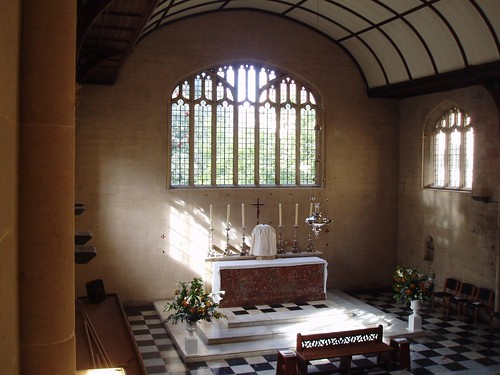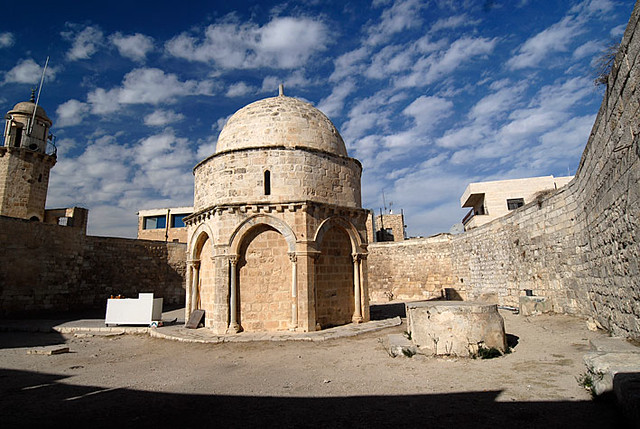 |
| Ernst was ordained in Oxford in 1956 |
Fr Cornelius Ernst’s early death in 1977, aged just fifty-three, cut short a theological career of great promise and significant accomplishment. As the English Dominican Province’s obituarist observes, “[Ernst] was a theologian of rare capacity who never managed to write the books that were in him”. It was not only his early death that limited his theological output, however: the heavy burdens of teaching, together with the administrative responsibilities that he obediently assumed, coupled with the scruples of a perfectionist’s attention to detail, contributed to a sadly meagre literary legacy that has, nonetheless, profoundly influenced the intellectual culture of English Dominican theology.
William Henry Ernst (known as Henry to his family and friends) was born on 16th October 1924 in British Ceylon to parents of Dutch extraction. There were, from an early age, signs of a Dominican vocation. Mrs. Ernst recalled the state of young Henry’s bedroom: “there were books everywhere, and not a single chair to sit on”. On the 8th May 1946, whilst a student at Cambridge, Ernst noted that “it became quite simply and luminously clear” that he ought to become a Catholic (and a Dominican for that matter). Reading Cardinal Newman’s works, loaned by a Jewish friend, had convinced him both that “Christian doctrine needed definition and authority” and that “Christians too were capable of intellectual exploration”. Three years later, Ernst joined the Order at Woodchester, taking the name Cornelius in religion.
| Hawkesyard Priory Church |
Ernst’s intellectual formation as a Dominican provided a thorough grounding in the Thomistic tradition, which balanced the eclecticism of his undergraduate studies. In 1956, shortly after ordination, he completed the Lectorate, submitting a thesis on St Thomas’s theology of grace and its sources in the Church Fathers. Assigned to Hawkesyard to teach in the Province’s house of philosophy, he served as Master of Clerical Student Brothers from 1958 until his eventual appointment as Lector Primarius (with responsibility for looking after studies there) in 1962. He moved to Oxford as Regent in 1966 and retired as chaplain to the nuns in the Isle of Wight in 1975. Writing in the house chronicle for the morning of 10th November 1959, a student brother noted that Ernst’s morning conference outlined that “students should consider themselves forbidden to smoke the morning cigarette whilst travelling in the habit”, before moving on to “speak at length of the need for recovering a sense of the distinctive tradition of the English Province”, touching on the historical constitution of humanity before rounding the morning’s session off with “a learned discourse about certain aspects of meaning”. Gladly today's Student Master tends to limit himself to treating one major philosophical problem per conference!
Indeed, it was the quest for ‘meaning’ that led Fr Cornelius to join the order and which governed his entire life as a Dominican. His theological writings repeatedly turned to humanity’s quest for meaning, seeing God as the “meaning of meaning” for which we all long. Perhaps his most influential book, aside from a collection of posthumously collected essays published as Multiple Echo, is a small book outlining the theology of grace, in which he suggests that grace can be understood in terms of the new possibilities for meaning that God works in creation.
| The Former Carisbrooke Priory as it is today |
Cornelius is remembered as a shy brother possessed of an outstanding intellect, theologically creative but yet attached to the traditional contours of the classical Dominican life, funny and yet serious. These paradoxes touched on what he saw as the heart of his faith: a commitment to bringing Christian doctrine into practical contact with the ‘tradition of the human heart’ as expressed in art, novels and our natural desires for beauty, goodness and truth. He wrote, in his private diary, “I cannot allow that God can only be adored in spirit and in truth by the individual introverted upon himself and detached from all that might disturb and solicit his heart. It must be possible to find and adore God in the complexity of human experience.” May he rest in peace.
































